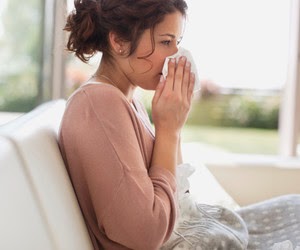Best Treatment for the Common Cold
Best Treatment for the Common Cold . And that, in spite of your best efforts to avoid it, and you've caught a cold. Your husband gave you a big kiss for your birthday holiday and now you have to be stuffy head, fever, and general malaise that makes you want to sit on the couch watching re-old game shows. You've got it bad. Well, there is some speculation to the most effective approach for the treatment of colds.
It is a mistake to presume it will be necessary to purchase antibiotics to treat a cold. Antibiotics kill bacteria, not viruses. A cold is a virus, and no drug has been discovered that will cure the common cold. The drugs that are out there can only treat the symptoms and reduce the time that you will be laid out on the couch.
Sleeping well and eating right can do wonders for well-being and overall health. Having taken good care of yourself before you even caught a cold will go a long way in ameliorating its effects. But even if you have been smoking, eating too much, and not exercising anything except your thumb on the TV remote, there are things you can do to help you get through the illness.
Goal one is to be as comfortable as possible until the symptoms pass. Goal two is to make those symptoms pass as quickly as possible. Some of the old tried and true methods are the best. Try to get as much sleep as possible. Twelve hours in a night is not excessive. Be sure to get plenty of fluids. Drink a lot of water. Nevertheless, teas and coffees do not supply as much water to cells as fluids in other fluids. Try to keep the room warm and humid.
Good nutrition can also help a person to recover from a cold. Supplements can help ensure the body gets recommended dietary allowances (vitamins A, B complex (vitamins B-1, B-2, B-5, B-6, B-12, and folic acid) and C, as well as the minerals zinc and copper). Vitamin C and zinc have been shown to be essential for the body’s production of neutrophils, which help fight infections.
To relieve aches and fever, Tylenol or some other pain reliever will be effective. Children should not be given aspirin as it can cause Reye’s Syndrome in the presence of certain viruses. Many health organizations do not recommend the use of over-the-counter cold and flu medicines to children under 13 because of their supposed ineffectiveness. However, it is the author’s personal experience that these medicines are highly effective especially when given at bedtime. (I am certain that they have not only made my children more comfortable, but have prevented more than one trip to the emergency room.)
Over-the-counter decongestants with pseudoephedrine are available to help clear nasal passages. They are effective, but of course for limited times. Before taking these with other medicines, or if the patient has any medical problems such as high blood pressure or prostate problems a doctor should be consulted. Decongestants used for more than 5 days may have a “rebound” effect, which means that they can actually cause the production of more mucus. Remember take only for limited time periods. Cough suppressants can be helpful when coughing begins to interfere with sleep or becomes severe in the daytime. Some coughing is helpful in relieving the chest of mucus and germs.
Just remember, you can’t cure a cold, and as the old saying goes, an ounce of prevention…
